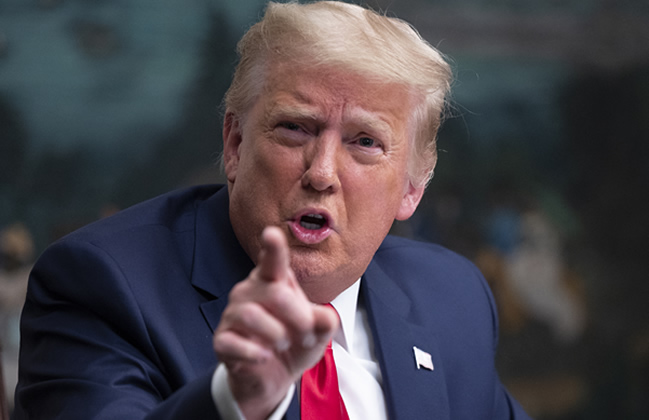Paragraph 1: The Purge Begins
Reports from major US media outlets like CNN and The Washington Post revealed an impending large-scale purge within the FBI, targeting agents involved in investigations related to former President Donald Trump. These investigations include the probe into the January 6th Capitol riot and other inquiries that led to now-dropped criminal charges against Trump. The reports suggest potentially hundreds of FBI agents, including supervisors and those in leadership positions, are being evaluated for dismissal. This extends beyond the FBI to include approximately 30 federal prosecutors on probationary status who worked on Capitol riot cases. The Justice Department justified these terminations by claiming the affected individuals could not be trusted to implement the President’s agenda, raising immediate concerns about political motivations behind the firings.
Paragraph 2: Leadership Turnover and Resistance
The scope of the purge is reportedly extensive, targeting the heads of over 20 FBI field offices, including prominent locations like Miami and Washington. Senior FBI leaders have reportedly been given ultimatums to retire, resign, or face termination. However, the plan faced internal resistance. Brian Driscoll, the FBI’s acting director appointed by Trump, reportedly refused to authorize the mass dismissals. This resistance highlights a potential internal struggle within the FBI, pitting career officials against those seeking to implement the President’s agenda. The targeted nature of the dismissals, focusing on individuals involved in Trump-related investigations, fuels suspicions of political retribution.
Paragraph 3: Condemnation and Concerns
The proposed purge sparked immediate and strong condemnation from various quarters, especially from Democrats and organizations representing law enforcement officials. Senator Dick Durbin, a leading Democrat on the Senate Judiciary Committee, denounced the dismissals as a “brazen assault on the rule of law” and an act of “widespread political retribution” undermining the integrity and effectiveness of the FBI and Justice Department. Concerns also arose about the impact on national security and public safety. The FBI Agents Association (FBIAA) expressed alarm, arguing that such widespread dismissals could cripple the FBI’s ability to protect the country from various threats. The FBIAA emphasized the contradiction between these actions and President Trump’s previously stated support for FBI agents.
Paragraph 4: The Context of Trump’s Legal Battles and Pardons
These developments took place in the aftermath of several significant events related to former President Trump and his supporters. Special Counsel Jack Smith, who brought two federal cases against Trump – one for attempting to overturn the 2020 election results and the other for mishandling classified documents – had resigned earlier. Both cases were dropped after Trump’s reelection, adhering to the Justice Department policy against prosecuting a sitting president. Furthermore, Trump pardoned over 1,500 individuals involved in the January 6th Capitol riot, an act viewed by many as further undermining the pursuit of accountability for the events of that day. These pardons, combined with the reported purge, raise serious questions about the independence of law enforcement and the potential for political interference.
Paragraph 5: New Leadership and Denials
Following Trump’s re-election, FBI Director Christopher Wray resigned, paving the way for the appointment of Kash Patel, a staunch Trump loyalist, as his replacement. During his Senate confirmation hearing, Patel denied any knowledge of plans to punish FBI agents involved in Trump-related investigations. He assured the Senate Judiciary Committee that all FBI employees would be protected from political retribution. These assurances, however, contrasted sharply with the reports of impending dismissals, creating a discrepancy between Patel’s public statements and the apparent actions being taken within the FBI. This discrepancy intensified concerns about the veracity of Patel’s testimony and the potential for a hidden agenda within the new FBI leadership.
Paragraph 6: Implications and Unanswered Questions
The reported purge within the FBI raises profound questions about the politicization of law enforcement, the future of the FBI’s independence, and the potential erosion of public trust in these critical institutions. The dismissals, if carried out, could have long-lasting effects on the morale and effectiveness of the FBI. The targeting of agents involved in Trump-related investigations, combined with the pardons issued by the President, creates a perception of impunity for those involved in challenging the 2020 election results and the January 6th attack on the Capitol. The coming months will likely see further scrutiny of these actions and their implications for the rule of law and the balance of power in the United States. The clash between the purported actions of the new administration and the denials of its representatives necessitates further investigation and transparency to understand the full extent of these reported purges and their true motivations.














